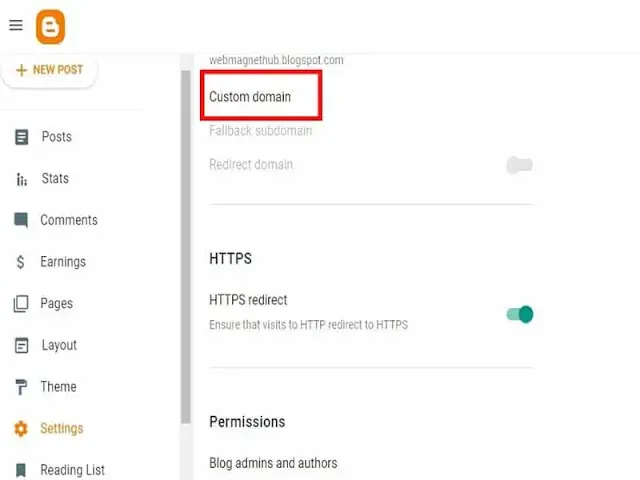Embarking on the journey of setting up your own website is an exciting step forward. However, it begins with selecting the right web hosting and registering a domain name. This comprehensive guide aims to simplify the process for you, ensuring that even beginners can navigate through with ease.
Firstly, let's delve into the world of domain registration. Your domain name is essentially your website's address, so it is crucial to choose it wisely. To register a domain name, you'll have to select a domain registrar, such as GoDaddy, Hostinger, Namecheap, etc. Check for the availability of your desired domain. Once you've found the perfect match, follow the registrar's instructions to complete the registration process.
Next up, let's demystify the process of setting up hosting, particularly on a platform like Blogger. Blogger is a user-friendly platform that offers free hosting services, making it an excellent choice for beginners. Our step-by-step guide will walk you through the entire setup process, from creating an account to customizing your blog's design and publishing your first post.
Now, explore some valuable tips for those who are just starting their journey in the world of web hosting. It's essential to prioritize security, regularly update your website's software, and choose a reliable hosting provider to ensure optimal performance. Additionally, consider investing in private domain registration to safeguard your personal information from potential threats.
Remember, while the journey of setting up a website may seem daunting at first, with the right guidance and resources at your disposal, you'll be well on your way of building a successful online presence. So, let's dive in and get started on this exciting adventure together!
Registering a Domain Name
Understanding Domain Names
A domain name serves as your website's unique address on the vast landscape of the internet. Think of it as the digital equivalent of your physical address, but with a touch of creativity and branding. Essentially, a domain name comprises two parts: the actual name itself, such as "example," and the domain extension, like ".com" or ".net." Choosing the right domain name is pivotal as it not only identifies your website but also leaves a lasting impression on visitors.
Private vs. Public Domain Registration
In the realm of domain registration, you'll often encounter the choice between private and public registration. Private domain registration, also known as domain privacy, adds a layer of confidentiality by shielding your personal details, including your name, address, and email, from being publicly visible in the WHOIS database—a repository of domain registration information. This measure helps mitigate risks such as spam, identity theft, and unwanted solicitations.
How to Register a Domain Name Privately
- Choose a Reputable Registrar: Opt for well-established domain registrars like Namecheap or GoDaddy to ensure a smooth registration process.
- Search and Select: Use the registrar's search function to find your desired domain name and choose a suitable extension that aligns with your brand and purpose.
- Opt for Privacy Protection: During the registration process, you'll typically encounter an option to add private registration or domain privacy protection. Be sure to enable this feature to safeguard your personal information.
- Provide Accurate Information: While privacy is paramount, it's essential to provide accurate contact information to complete the registration process smoothly.
- Confirm and Pay: Once you've filled in the necessary details, proceed to complete the payment process to finalize your domain registration.
Is Private Registration Necessary?
While private registration isn't obligatory, but it is undoubtedly a prudent choice for those who are concerned about their online privacy and security. By opting for private domain registration, you add an additional layer of protection against potential threats, giving you peace of mind as you embark on your online journey.
You May Also Like
Exploring Blogger: A Beginner-Friendly Blogging Platform
In today's digital age, establishing an online presence is crucial for individuals and businesses alike. One of the foundational steps in creating a website is selecting a reliable blogging platform and understanding the importance of private domain registration. In this guide, we'll delve into Blogger, a popular blogging platform owned by Google, and explore the significance of private domain registration.
What is Blogger?
Blogger is a free blogging platform owned by Google, making it an excellent choice for beginners looking to create a blog or simple website without the need for advanced technical skills. It offers easy-to-use tools and templates for designing and publishing content online. With Blogger, individuals can easily share their thoughts, stories, and ideas with a global audience.
Step-by-Step Guide to Setting Up Hosting on Blogger
Sign In or Create a Google Account
To get started with Blogger, you'll need to have a Google account. If you don't already have one, you can easily create a new account. Your Google account will grant you access to Blogger as well as other Google services.
Go to Blogger
Once you've signed in to your Google account, navigate to the Blogger website. You can access Blogger by visiting blogger.com and signing in using your Google account credentials. This will take you to the Blogger dashboard, where you can manage your blogs and content.
Create a New Blog
In the Blogger dashboard, click on the "New Blog" button to create a new blog. You'll be prompted to choose a title, address (URL), and template for your blog. It's important to select a descriptive title and a relevant address that reflects the content of your blog. Additionally, choose a template that suits your style and preferences.
Customize Your Blog
After creating your blog, you can customize its design, layout, and settings to make it unique. Explore the customization options available in the Blogger dashboard to personalize your blog. You can customize aspects such as colors, fonts, widgets, and more to create a visually appealing and engaging blog.
Start Creating Content
Once your blog is set up and customized, it's time to start creating content. Click on the "New Post" button in the Blogger dashboard to create a new blog post. Write your content using the built-in editor, add images, videos, or links, and format your post as desired. When you're ready, click "Publish" to share your post with the world.
Importance of Private Domain Registration
When registering a domain name for your blog or website, you'll often encounter the option for private domain registration. Private domain registration, also known as domain privacy, provides an additional layer of privacy and security by shielding your personal information from being publicly visible in the WHOIS database. This helps prevent spam, identity theft, and unwanted solicitations.
Blogger offers a user-friendly platform for individuals to create and publish content online, while understanding the importance of private domain registration ensures the security and privacy of your online presence.
Essential Tips for Beginners in Web Hosting
Embarking on your journey into web hosting can feel like navigating uncharted waters. Whether you're launching a personal blog, setting up an online store, or establishing a corporate website, it is essential to know about the basics of website hosting. Here are some invaluable tips to help you to understand, how to start web hosting and navigate the world of web hosting with confidence.
How to Start Web Hosting?
Selecting the appropriate hosting plan lays the foundation for your online presence. Consider factors such as your website's anticipated traffic, storage requirements, and budget constraints when evaluating hosting options. Whether you opt for shared hosting, VPS hosting, or dedicated hosting, ensure that your chosen plan aligns with your website's needs and growth projections.
Backup Your Website Regularly
Website backups are akin to insurance policies for your online assets. Regularly backing up your website's files and data safeguards against unforeseen disasters, such as server crashes, data corruption, or cyberattacks. Implement automated backup solutions or schedule regular manual backups to mitigate the risk of data loss and ensure quick recovery in case of emergencies.
Optimize for Speed and Performance
In today's fast-paced digital landscape, users expect websites to load quickly and deliver seamless browsing experiences. Optimize your website for speed and performance by leveraging techniques such as image optimization, caching, and content delivery networks (CDNs). Conduct regular performance audits and address any bottlenecks to ensure that your website meets user expectations and ranks well in search engine results.
Secure Private Domain Registration
When registering your domain, consider opting for private domain registration. This shields your personal information from public visibility and protects you from spam and unwanted solicitations. Evaluate the benefits of private vs public domain registration to make an informed decision. While private registration may come at an additional cost, it provides an extra layer of security and privacy for your domain.
Seek Support When Needed
Navigating the intricacies of web hosting may sometimes require expert assistance. Don't hesitate to reach out to your hosting provider's support team or consult online resources for guidance and troubleshooting. Community forums, knowledge bases, and tutorials can offer valuable insights and solutions to common issues encountered in web hosting. Remember, seeking support is a sign of proactive management and ensures the smooth operation of your website.
By following these essential tips, you can embark on your web hosting journey with confidence and set the stage for a successful online presence.
You May Also Like
Ignite Your Online Adventure: Embrace the Exciting Web Hosting Expedition
Embarking on your web hosting journey can indeed evoke a mix of excitement and apprehension. However, with the guidance provided in this comprehensive guide, you'll find yourself equipped to navigate the complexities of the digital realm with confidence. From registering a domain name to setting up hosting on platforms like Blogger, each step is demystified to ensure a seamless experience.
Registering a domain name is your first step towards establishing your online identity. It's akin to securing your plot of digital real estate in the vast landscape of the internet. Choosing a domain name that resonates with your brand and audience is crucial. With the right domain name registrar, such as Namecheap or GoDaddy, and opting for features like private domain registration, you can safeguard your personal information and ensure a secure online presence.
Once your domain name is secured, setting up hosting on platforms like Blogger becomes the next logical step. Platforms like these offer user-friendly interfaces and tools, making them ideal for beginners. By following a step-by-step guide, you can effortlessly configure your hosting settings and bring your website to life.As you embark on this journey, remember to prioritize aspects like security, performance, and user experience. Implementing robust security measures, optimizing your website for speed, and crafting an intuitive user interface are essential steps in ensuring your website's success in the digital landscape.
Whether you're starting a blog to share your passions, launching an online store to showcase your products, or promoting your business to a global audience, web hosting serves as the cornerstone of your online presence. With the right knowledge and tools at your disposal, you're well-positioned to carve your niche in the digital realm and thrive in the online ecosystem.





